|
“Idealism must always prevail.” Omega Mu has a determinative, historic pride of place at the University of Maine, and it started in 1874 when fortune smiled on seven young who, with a combination of daring thought and brimming idealism, decided to take the headstrong risk and found QTV, our fraternal predecessor. Through hard work, sweat, and, above all, commitment to principles and obligations, they succeeded with demonstrable efficacy. Thankfully, because of the vitality of their collective character, there was no debate between courage and cowardice in founding Q.T.V., only unshakable, optimistic courage, and the critical virtue of courage has continued to prevail in our combined fraternal history. It simply is the Q.T.V. and Omega Mu way of doing things, and in scope and enduring richness it has sustained our combined fraternal history. As it was typical then, it is equally typical now, for young men at the University of Maine to experience the long-standing gift of brotherhood that continues to this day when young men to take the “leap of faith” and become Omega Mu Fijis, showing that the closeness of the heart’s reasons and mind’s reasons, to use Pascal’s balanced dichotomy, are equally strong now as they were in 1874. That, really, is what is most important. Our QTV brothers, with imaginative power, took their visionary fraternal ideal and created the staying power of traditions, rituals, and customs that became the sustaining keys of their success until 1899 when they became Omega Mu Fijis. Several pictures of our QTV brothers document the enduring pleasures of our brotherhood by showing the simple fraternal expressiveness of their customs and traditions in creating what it means to be a Q.T.V. brother. One of the practices of our QTV brothers was participating in Ivy Day, a festive and celebratory day that was common at the University of Maine from the 1880’s-1900’s. An early writer for the University of Maine campus newspaper, The Cadet, wrote: “whoever conceived of the idea of college classes planting an ivy upon the campus of their Alma Mater, deserves the thanks and the honor of all those who continue to observe the pleasant custom…the ever ascending vine represents in a degree, the growing success of those who placed it there.” As you notice in the photo, many of our QTV brothers are holding canes or sticks, and they would use them to pock holes in the ground in order to plant a sprig of ivy around the campus. Before the actual planting of ivy around various buildings, there would be a prayer, musical performances, a reading of a poem, and even a speech. “Fernald Hall has traces of Ivy Day plaques between the windows on the first story. Ivy Day plaques commemorate Ivy Day, a late 19th century University of Maine tradition. Graduating seniors planted ivy and placed ivy-shaped stone plaques engraved with their year of graduation on buildings.” Also, “Coburn Hall has one extant and evidence of one missing marble Ivy Day plaque. Graduating seniors planted ivy and placed ivy-shaped stone plaques engraved with their year of graduation on buildings.” The following IVY DAY ODE was written by Mildred C. Mansfield in 1906: While the breezes are whisp’ring that Summer is near, And all Nature rejoices in Spring, We are planting our Ivy with tenderest care, May its increase the future years bring. May it flourish and live; may it broaden and grow, Even higher its branches still climb; ‘Till covered be all of our dear-college walls Far down the long ages of time. ~as printed in The Maine Campus, May 29, 1906, page 329 Ivy Day celebrated an ending, but it also meant a new beginning and a new hope for the graduating QTV seniors as they embarked upon their wide and varied careers, industrious and able in their chosen fields. Although Ivy Day is no longer observed, which I think is a pity, a second customary tradition of our QTV brothers is similar to, in spirited significance and substance, to our Pig Dinner. It was compelling and humorously structured, and it was beautifully narrated like Pig Dinner. It had all the trimmings of speeches, readings, songs, a meal, and the quotes about each Q.T.V. class were lyrically puckish. Notice the “Absent Brethren” portion of the program of events, it is identical to our “Exiles Toast.” The entire Q.T.V. celebration, like our Pig Dinner, proudly asserted it is good to be in the Q.T.V. Chapter House; it is good to be a Q.T.V fraternity brother. That is evidently clear; not confusing, and easy for us to understand because we understand the value of our customs and traditions. Rites, traditions, and customs are good and instructive in helping establish a fraternal environment of self-discipline and communal-discipline. In short, considerate, simple traditions help create character. A round of clicks. Our Q.T.V. brothers knew that traditions were needful, necessary, and deserving of collective attention and respect, and like them we continue to believe in the importance and value of our traditions and customs. So we remember our fraternal past with pride as we prepare for our fraternal future in hope. With the same headstrong and rugged idealism of our founding QTV brothers, we entered the portal of Omega Mu to become brothers in this most historic of fraternities at the University of Maine, and that this brotherhood coheres in our love for our past, our present, and our future. That is an inextricably deep fraternal pathos, warm and rhythmical in heart and mind, that will help us endure for another 120 years, true to our traditions that started with heart and hard-headed idealism of seven young men who founded a society for “the best interest of its members throughout life” without drama and theater. Those seven original brothers wrestled with an ideal idea about the human spirit, and they won, and so have we. Idealism, girded by firm rational commitment, and our collective love for our Omega Mu brotherhood will prevail and endure as it continues to be the inimitable example of fraternity life at the University of Maine, deservedly so. As the writer of Philippians pithily stated: “Think on these things.” That is a heritage to be proud of, smile at, rejoice over, and stand up and link our arms and sing about. We need to assure that our unique brotherly community and the visual charm of our fraternal home, the Castle, remains the supreme, uncompromising good that it is on our bend of the Stillwater River. The sobering fraternal truth is we are historically unique, tradition-grounded, and generationally united for 120 years now, and we intend to remain enduringly strong like the ivy growing on many University of Maine buildings, many of which are named in honor of, or were designed by, our brothers’. What a permanent symmetry of architectural presence, fraternal ideas, and durable history we have to celebrate as we approach 2019. Fraternally,
Chip Chapman, 1982 Perge!
0 Comments
“A people without a heritage are easily persuaded.”
My simple matter-of-fact belief is that our Omega Mu traditions, rites, and rituals must be revered and cherished because they play a salutary role, as we all know, in our history as we approach the 120th anniversary of our founding. Above all, rituals and traditions provide sustaining clarity and power to who we are, and who we have been for 120 years. There are many who would say that rituals, traditions and customs are unnecessary dogma, but that is okay because we do not require the validation of hardened skeptics; secondly, these folks, the “centerless many,” to use Buber’s fitting phrase, do not understand that dogma derives from its Greek root, dokein, and it means “good or fitting.” Yes, dogma is a good word. Dogma, as opposed to dogmatism, does not seek to create a jackbooted “desert of uniformity” where everyone is mindless, soul-deadened, and emotionally straight-jacketed. Quite simply, it does not mean blind adherence; on the contrary, the heart and breath of fraternal dogma is wisdom and discipline, and they help you learn how to live fraternally well. Seldom, however, do fraternities continue to thrive without customs, traditions, and rituals. At their best, our rituals, customs, and traditions undergird and affirm what is good, ennobling, and bonding, collectively and individually, across the time and space of life. That is the mystically permanent truth of Omega Mu fraternity life; they provide a durable continuity of historical sense during our undergraduate and graduate years. We may not understand the basis or reason of all of our fraternal traditions, and perhaps we do not need to understand, but it is infinitely childish and immature simply to discard them because you do not understand them, or that they are old. To that I unequivocally say, “No!” In a very real sense, they make us better human beings, better brothers, and a better chapter house. Now the question is: without brotherly traditions, customs, and rituals, what is a fraternity? A fraternity without them is living with a cancer that will kill, and it will. Hence, our traditions provide ultimate historic coherence with our Q.T.V brothers in 1874 and with Phi Gamma Delta in 1899. No, there can be no take-me-or-leave me attitude with the very things that have carried us this far. The discipline of ritual memory and practice is not a burden, it is a rewarding, sustaining joy, and you fraternally grow and prosper with them. Altering traditions does affect the quality of life in The Castle. Consequently, our fraternal culture must never be lured into the culturally killing waters that asserts that rituals, graces, traditions, and customs should be altered, or even discarded with open contempt due to the chilling, capricious wind of changing fashion, political correctness, or laziness of effort. Yes, our traditions and rituals must not alter with time, and they must be embraced, and not merely passively accepted as a cumbersome burden. Milerepa said it best: “…never be content with partial practice.” Clearly, our customs and traditions are the bread-and-butter that give us zeal and strength in who we are as Omega Mu Fijis, and they establish a durable good of well-being within and beyond The Castle. As a side note, I do not apologize for capitalizing the definite article “The” before Castle; there is only one at the University of Maine. Though many of us are grey and grizzled now, becoming an Omega Mu Fiji was a decisive event our life, and it was the events, rites, rituals, traditions, and customs that we embraced that made our lived fraternal life deeply satisfying, exactly and powerfully, with the widest pleasure and joy. We would not have it otherwise, nor would we ask for anything else. Looking back, we all lived happily within these rituals and traditions, and we still do when we come back for Pig Dinner. Our pragmatic willingness to not compromise on these principles, practices, and traditions is, in a significant way, why we have survived for 120 years. I welcome the prospect that all future brothers will have the same level of committed fraternal civility and devotion to our storied rituals and practices because they make our Omega Mu life meaningful and rewarding for life. Living in The Castle was fruitful in every way. The writer of Psalm 133 understood our fraternal point of unity when he wrote: “How good and pleasant it is, when people live in unity.” A great grace. Although the social, civil, and religious plate tectonics of society change capriciously, we stand proudly apart, and our uplifting and unifying traditions must never diminish. They help us maintain our eminent historical sense of brotherhood to avoid the soulless wreckage that is occurring to established traditions and rituals in other places, and that is not an overstatement. Then and now, and into our next 120 years, our rituals and traditions need to continue during our shared meals each day, during chapter meetings, Pig Dinner, Greek Week, our social service commitments, Christmas traditions, Fiji Island, intramural team participation, our fun times with each other on the front lawn, in the basement, on the Phoenix Lounge, in the RAM; our simple daily duties around the house, and on campus. These shared fraternal events magnify, singly and collectively, the ultimate good of what it means to be an Omega Mu brother rather than living in the solitary confinement of a stockyard dorm room. We will continue to believe, against much of the prevailing social current, that fraternal life is significantly good and important, in mind and spirit, in helping young men live together with purpose and responsibility, peaceably and enjoyably during their college years. The hard-headed historic logic of our 120 years of existence proves that we do know what we are doing. We shall continue to be different, eminently different, as we have since 1899. Omega Mu, indeed! The simple fact is that Omega Mu life is inescapably communal. Our traditions and rituals ground us and call us forward. As I consider the now discontinued, sadly so, title of the University of Maine yearbook, “The Prism,” a prism is the best metaphor in describing our historically time-cemented traditions that bind our fraternal brotherhood from generation-to-generation in fluid historical continuity. Rituals and traditions provide historic symmetry, order, structure, and meaning, and it is all too human that we forget these binding traditions and rituals because of the twist, turns, and blind alleys of time. The awesome truth is that our stately and gracious riverbank home, The Castle, has been, in substance and reality, in energy and imagination, a cup that runneth over with enthusiastic traditions that established our long-standing fraternal sense. I have been truly moved by our various traditional-ritual scenes, time after time. They exhibit love, loyalty, commitment to word, thought, and action. We certainly know and live by that famous inscription on the Temple of Apollo: “Know Thyself.” Whether it be inside or outside The Castle, we must maintain a clear historical continuity with our rituals and traditions, and not simply make compromises in order to be cool and up-to-date with the present. Our historical practices are the renewing blood in the affairs of our daily, seasonal, and yearly life, and they carry us forward as the oldest fraternity in existence at the University of Maine. Through the early 1960’s, the Omega Mu housemother was escorted into the dinning commons by the president of the house. When she entered the dinning commons, the brothers, dressed in coat and tie, were standing, and then they would all sing The Doxology together. A beautiful image, from my way of thinking. A little more piquant is the dinner tradition of some brother reading, with unbridled rhetorical gusto, a limerick or two from the limerick book. The second tradition was to eat the delta of the piece last, and to take the piece of pie from a brother if he did so, and there was never any complaining if you lost your slice of pie, just natural consequences. Another tradition was functional: you did your house job each week, and if you failed to do so the gig master would get on your ass to do it in a not so no-nonsense way. It had to be like this, and no other way because The Castle needed to be taken care of, and we all embraced the discipline and responsibility of maintaining The Castle, and it was not a troublesome matter. It was a fundamental fraternal task because we wanted the house to be a clean, well-kept, attractive place to live. It was that simple; therefore, we could not be lazy, passive, or self-indulgent with these communal obligations. In addition, there were brothers who knew the practical engineering and structural needs of the house, and they kept us informed of them. For many years, there were rules and laws in the house that brothers had to adhere to, or they would be fined, and they would pay the fine in your next subsequent house bill, without fail! With an expansive view of rituals and traditions, because they vary from generation-to-generation, simply being together around the house was the most important for each of us, and after nightfall many antic events and hilarious rituals occurred in the RAM. And, of course, the two most important rituals are initiation and chapter meetings. Our entire fraternal history rests upon those ideals which started with our QTV brothers, and to them we must fraternally cling: loyalty, commitment, resilience, love, grace, and joy. As we consider our historical mission and identity as we approach our 120 years of existence, traditions signal continuity with the past as we prepare for each new generation of men who wish to gather together under the historic roof of The Castle. It is a remarkable return in human investment that lasts beyond college years. The truth is self-evident: rituals and traditions are the deepest, truest, and ultimate example of our Omega Mu brotherhood. Put quite simply, historical continuity, traditions, and rituals touch me immensely, and I know they mean something to each of you. They are the strong message of a lived expression of shared beliefs that sustains us through historical time, and may we continue to grow in appreciation of them. Organizations often return to their founding principles when their identity stagnates or fragments in a disorienting manner. We never left them, and; thankfully, with our sustained rituals and traditions, there is no prospect of our Omega My brotherhood ever ending. There is fraternal meaning, fraternal truth, fraternal joy, and fraternal love in custom, ritual, and tradition, always. It is generally held, unfortunately, by many critics that fraternities are historical anachronisms that need to be placed in the geological detritus of human history. It is almost a popular assault grounded in misguided and misinformed feelings. We are unfashionable. This is too bad, but I would argue the dialectic opposite as to how and why fraternal life, with our traditions and rituals, are essential for the development of good character, by-in-large, and it certainly has a more effective case for existence than dormitory life. The mutual reinforcing variables of day-to-day responsibilities, and the grounding measure of rituals, with their respective images and feelings, sacred and otherwise, creates the best of what we call fraternal community. As we are historically time-rooted on the University of Maine campus, we are going to continue to provide a life-enhancing fraternal experience that is enjoyable, challenging, and life-changing. That is not an evanescent dream; it is a solid, substantial, salutary truth, and our linked fraternal circumference is only going to grow into the future. As Nietzsche so beautifully stated: “Their vision of the past turns them toward the future.” Chip Chapman, ‘82 Perge! From time to time I ask myself whether I should have dedicated myself to living a dorm life for four years, and I end up quietly laughing and shaking my head. As I begin this blog, I would like to apologize for the personal tone of some of the things that I will write. By their very nature, blogs are subjective, highly personal, and, at times, confessional. Many years ago, I was talking with a friend of mine who is a music professor at the Washington Conservatory of Music, and in the course of our conversation I asked him who his most important teacher was, and he told me that it was Leon Fleischer. I was stunned and probably said, “Wow, are you kidding me; I love Fleischer!” He nodded his head in the affirmative and then proceeded to outline the genealogical musical tree that he was part of, and it went straight back to musically inimitable person of Ludwig von Beethoven, and by extension to Beethoven’s celebrated teacher, Franz Joseph Haydn. Needless to say, I smiled at the thought of Michael being part of such a rich musical heritage, and every time I have heard him play since then I appreciate Michael’s piano playing even more, gratified to think that the musical spirit of Beethoven’s musically “startlingly and radical original ways” lives on, with no imminent end in sight, with Michael at the keyboard playing Haydn or Beethoven and truly hearing their musical communion through time.
The reason I thought about this conversation with Michael this morning was due to the fact that I was thinking about the indefinable fraternal beauty of our own fraternal genealogical tree of Big and Little brothers and how Mike McInnis spoke about Paul Stimpson, his Big Brother, at Pig Dinner, and how emotionally moved he was in talking about Paul’s good character and amiable disposition. His remarks were heartfelt and true and much appreciated because they were unembellished by anything insincere. Mike’s remarks hit home. They were deliberate in emotional honesty in how he cared for his big brother, Paul Stimpson. With each word, you could hear Mike’s undying gratitude, respect, and affection for Paul. In a meaningful way, I was moved by what Mike said. This, it may be said, is the deep-rooted quality of our Omega Mu life - throughout ones life. Our friendships are not barren and unfulfilling, and “they are not for college days alone.” I know that I am of a Romantic sensibility in how I view life, history, my career-calling, people, friendship, and love. Romanticism is all about feeling and being, and these two principles have always guided me, personally, vocationally, and avocationally. I remain distant, even aloof, from most people because I am terribly shy, introverted, and I do not engage in blah, blah, blah chatter very often, and I do not say these things with any gnashing of teeth, arrogance, regret, or sense of shame. I have plenty of thorns, and an equal number of roses, that have knitted themselves into my soul and made me who I am, and one of the roses is being an Omega Mu Fiji. I lived on my own pathway during my years in The Castle, and my greatest successes were being the best driver for most road trips, biking across the country my sophomore summer in two months, and going to the socially ecumenical first floor environ of Fogler Library every night, even Friday night, to read, take reams upon reams of legal pad notes, study, and write until the library closed, and I did so out of pure, grinding necessity because of my dyslexia, not precocity. I would walk back to The Castle and go to bed in the RAM. I never went to a single 11-2; I never even went downstairs to see what was happening. Pretty boring, right? Probably, yes! Candidly, in most ways, I am the least fraternal person in temperament, socially speaking, and certainly my impact on Omega Mu was thin to the point of non-existent invisible. I do not have a large charismatic come-hither personality in the least, and I instinctively shrink from large groups and parties. Metaphorically speaking, I was a non-note in the larger symphonic beauty of Omega Mu. That is the equivalent of being the musician who taps a single pinging note on the triangle during the entire symphony. That was I. That being said, I never felt any misgiving about pledging and becoming an Omega Mu Fiji. I never felt any sort of alienation from the Omega My brotherhood, and my personal-life-academic navigational choices were never questioned or criticized. That’s why I am proud to be a Fiji. In truth, the spirit of Oscar Wilde definitely prevailed in The Castle: “Be yourself; everyone else is already taken.” I do look back from whence I came with pride, and I am thankful for my Omega Mu brothers, even though my presence, for the most part, was fraternally asymmetrical. To play off of what Auden wrote, I was certainly free to be me, but I was totally committed and attentive to all the rituals, customs, and sacraments, if you will, within our brotherhood. I was responsible in fulfilling all of my obligations in taking care of The Castle, and I certainly admired, liked, and cared for each of my brothers. To honor many them I wrote a long poem, Omega Mu Suite: A Brotherhood on the Stillwater, to express my gratitude, affection, respect, and appreciation for them. The clear-eyed and objective answer as to whether being an Omega Mu brother is worth it is simple: “Yes!” It is an understanding and caring presence throughout life. That is genuine community, not an artificial life-support system. “Fore and Aft” Crosscurrent cords to Find the right Key Of expression for My Big and Little Brothers’: Greg Scott and Doug Banks Because it is a semi- Mystical thing to Consider the gentle Crosshatching of Brotherly threads in The human gradient of Time of our Historic Omega Mu Lineage that Time’s ticking Teeth cannot Tear, for the Timeless Truth is there Is never a Fore or Aft, Passing or Ceasing, in Our Omega Mu Brotherhood. Because Our fraternal Brotherhood, Like time, Never resets, Pauses, reboots, Remixes or Examines Itself - Never It always Is a quality Of relationship, A ground of Being that Has unself- Consciously Pulsed good- Naturedly through Years without Social artifice, Throwaway Lines, mistaken Phrases or false Perceptions. Only the lived Fraternal Friendship of Nods, smiles, Handshakes Laughs and Fraternal good Will that is Appreciative Cheerful, relaxed And kind. And though Thirty-eight years Have slipped Away, we still Abide Because it Is a simple Yet ineffable Brotherly Testament that Penetrates Down Deep and Across the Arc of Time That is A perfect Cord That Requires no Change in Key. (“Fore and Aft” specifically honors my Big and Little Brother, Greg Scott and Doug Banks, but it generally honors all my Omega Mu brothers) In conclusion, and in appreciative awe, our fraternal trip together is more than worth the journey, and it runs deep, and the giving and receiving between all brothers circulate as one, and it has gone on since our Q.T.V. brothers established the providential key of fraternal stability that continues to this day. This unbroken, linked key of connection is unsurpassably impressive in our history. It is similar to the deep spirit of Beethoven in, that, he was always striving by the sheer force of his music to honestly speak to issues of life, love, human nature, human determination, the temporal world, and the eternal world, realistically and Romantically, in every musical composition. Our fraternal line of Big and Little Brothers extends back over a hundred years, and it remains a fixed axial point that is emotionally penetrating and remains deep in our memory, still and poised. Without exception, I appreciate Scooter and Doug - all my brothers - and it is a unique feeling to be forever linked with them in our historic lineage: The power of our perseverance through 120 years of time. Fraternally, Chip Chapman, ’82 Perge! The Castle is highly visible meritorious building that everyone sees as they drive down College Avenue from Orono, and I guarantee you they look at it. Who wouldn’t? It stirs our emotions as only beauty can, and we look at it and smile, indulgently, with the gratifying knowledge that it is ours. It does affect each of us that way, I know; it stays in our memory. It is a deep sense of place that we all share. We hold the distinction as the first chartered fraternity at the University of Maine, and it is the only fraternity house in the state of Maine that is on the National Historic Record of Buildings and Homes, and I doubt if there are many fraternity houses in the nation that are so honored. One can only wonder what The Castle will look like 120 years from now. Hopefully it will not be destroyed by neglect, mistreatment, or ignorance. It is fitting to remember that our brothers in 1925 were a significant historical linchpin in helping turn nothing into something with their committed organization and daily responsibility in bringing our grand and beautiful fraternal home into being, and they did not need to be coaxed to do so. There was no futile time spent lamenting the fire that destroyed the old house, they simply got to work on the new one with boldness and imagination, head and heart. With excitement and change in the air, they could not retreat from what they had to do. Rising to the occasion, they shared a common fraternal interest, and the passion of their collective sweat equity, quite literally earthy and visceral, was the highest in serving the greater good for our fraternal future. To their way of thinking and acting, it had to be like this, and no other way. Seldom, perhaps, has our brotherhood exhibited such “an inexhaustible voice…a soul, a spirit capable of compassion and sacrifice and endurance.” They were on the construction site during the surveying, digging, leveling, hammering, sawing, framing, laying the foundation, mortaring and brick work, flooring and window work, and everything else to create our visibly alluring fraternal home at the University of Maine. Inch by inch of the construction process, they were equal to the occasion each and every day, and their place in our history is deserving of absolute respect. They truly built a new life from the ashes of the old, and it is more astonishing that it was completed in a year. Lastly, they lived Teilhard de Chardin’s phrase in everything they did: “A fresh kind of life is starting.” With deep and lasting affection, we thank them for their efforts. The question is whether we feel and act the same way toward renewing The Castle with a fresh breath of architectural life as they did in helping bring it to life. We know that the hands of time cannot be reversed to that first day when the our brothers walked through the front door of the newly built Castle and everything was perfect, new, and fresh. However, with our collective effort we can come close in giving it a courageous rebirth that those brothers would be proud of seeing, as well as the aesthetic historic balance of harmony, effort, and commitment between the fraternal generations: the continuing linked journey of committed devotion, with our eyes on the future. Dogma at its best. The Castle was, and continues to be, a pathway in our collective life that shaped each of us to be successful; therefore, let us be unified in our enthusiasm and effort to see that the Castle does not become a run-down landmark that unceremoniously fades into the forgotten past like other fraternities at the University of Maine. We have no reservation in stating that we are proud to be part of the great tradition and history of the University of Maine, and that many more young men will walk through the welcoming and fraternally hospitable front door of The Castle. In closing, with rational simplicity; emotional, intellectual, and fraternal rigor, we have succeeded since 1899 in a historically arresting manner: fraternally, historically, and architecturally. May it remain that we continue to succeed for another 120 years. Everything we do now we do in the hope that in the years, decades, and centuries to come, young men will find their way to the most beautiful fraternity house at the University of Maine with its unique architectural character and fraternal distinction. That is a true historic statement, and it certainly echoes the truth of what Keats stated at the end of “Ode on a Grecian Urn”: “Truth is beauty, beauty is truth - that is all ye know on earth, and all ye need to know.” Raise the steins to Omega Mu and our brotherhood. Chip Chapman, ‘82 Perge! |
Archives
December 2024
Categories |
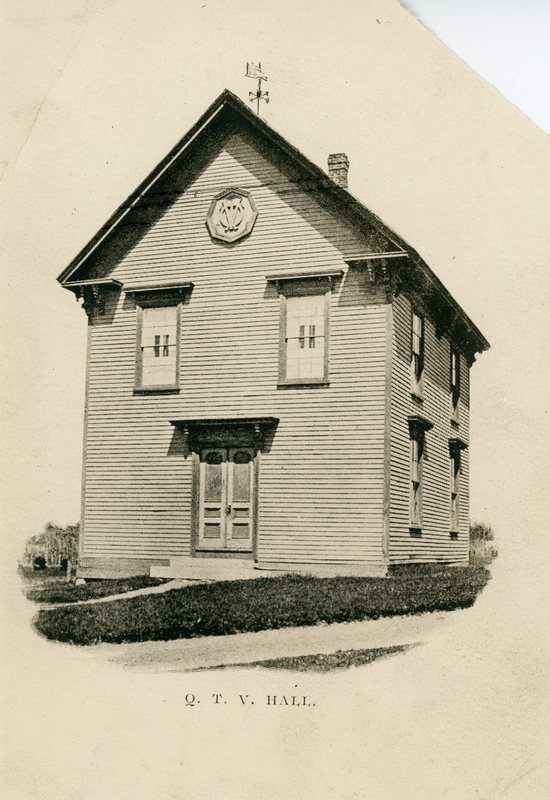
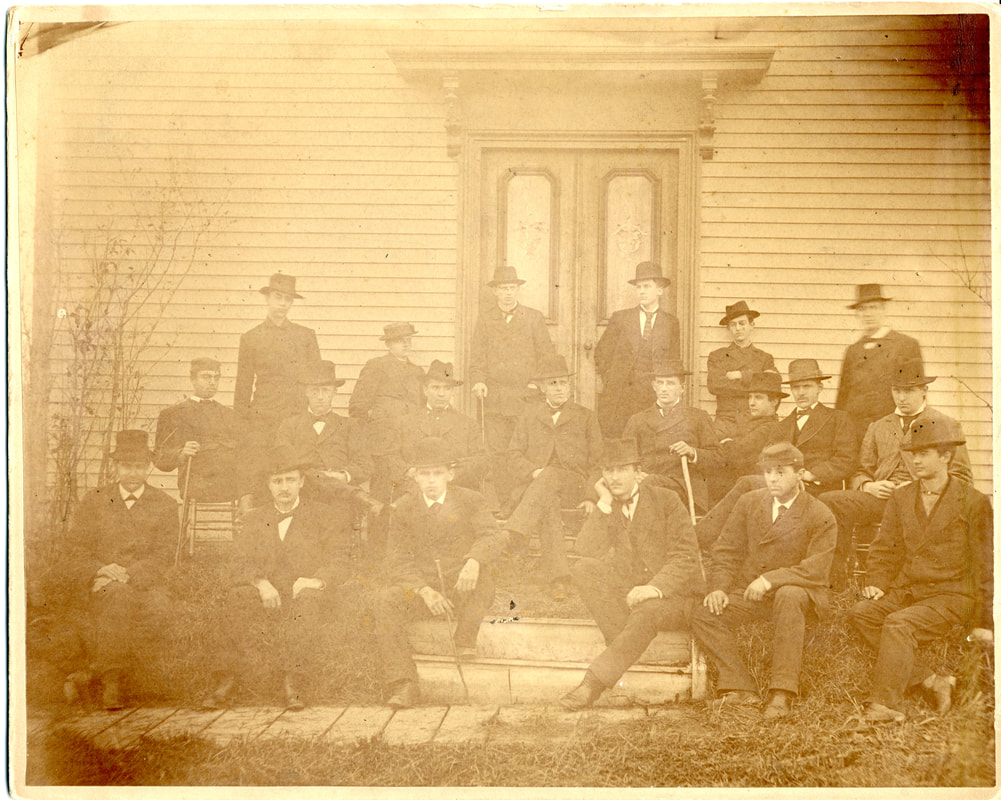
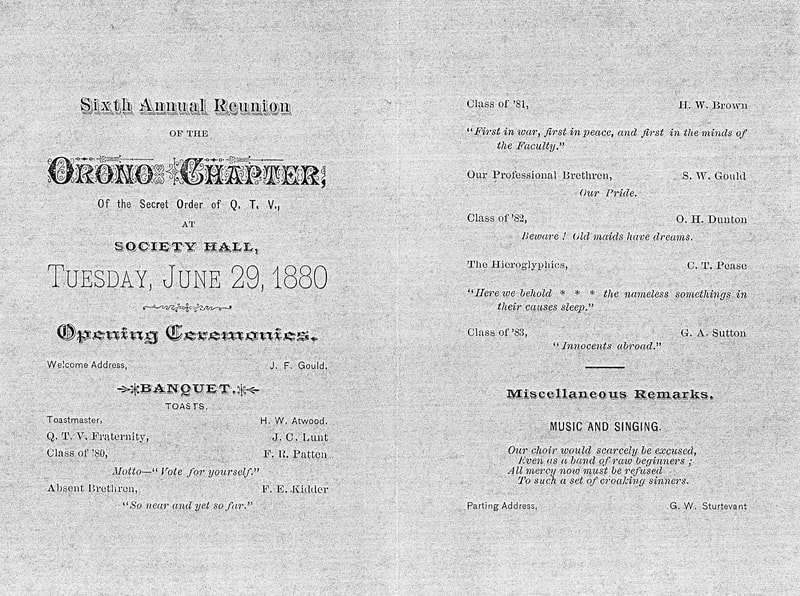
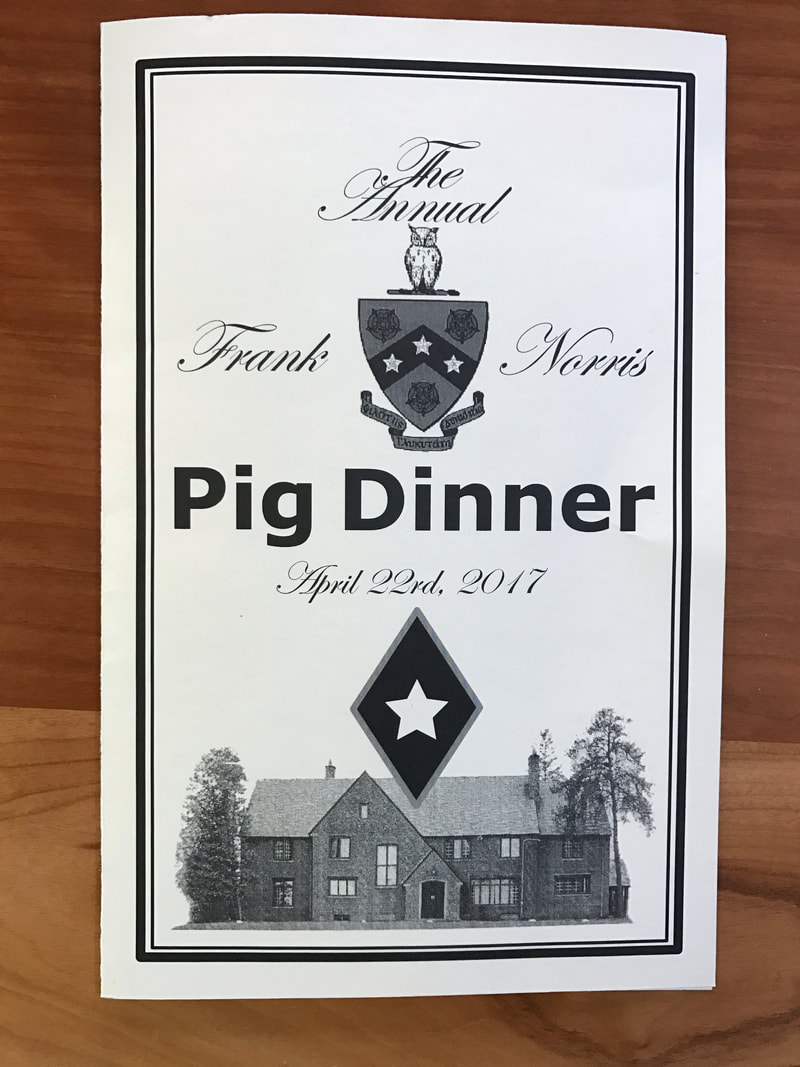
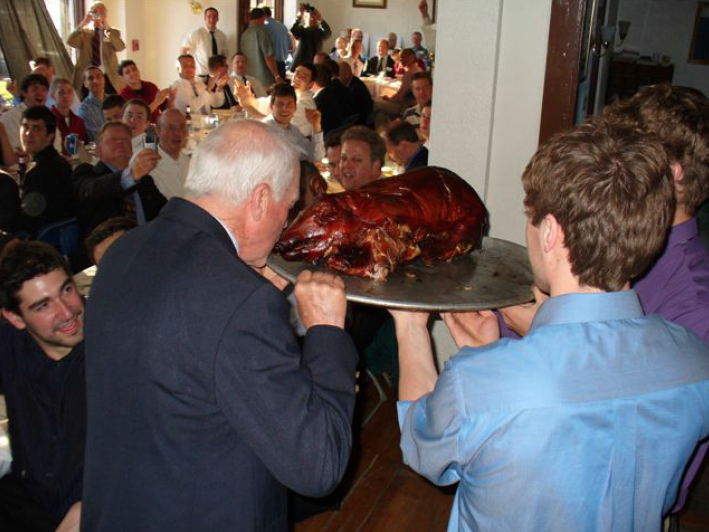
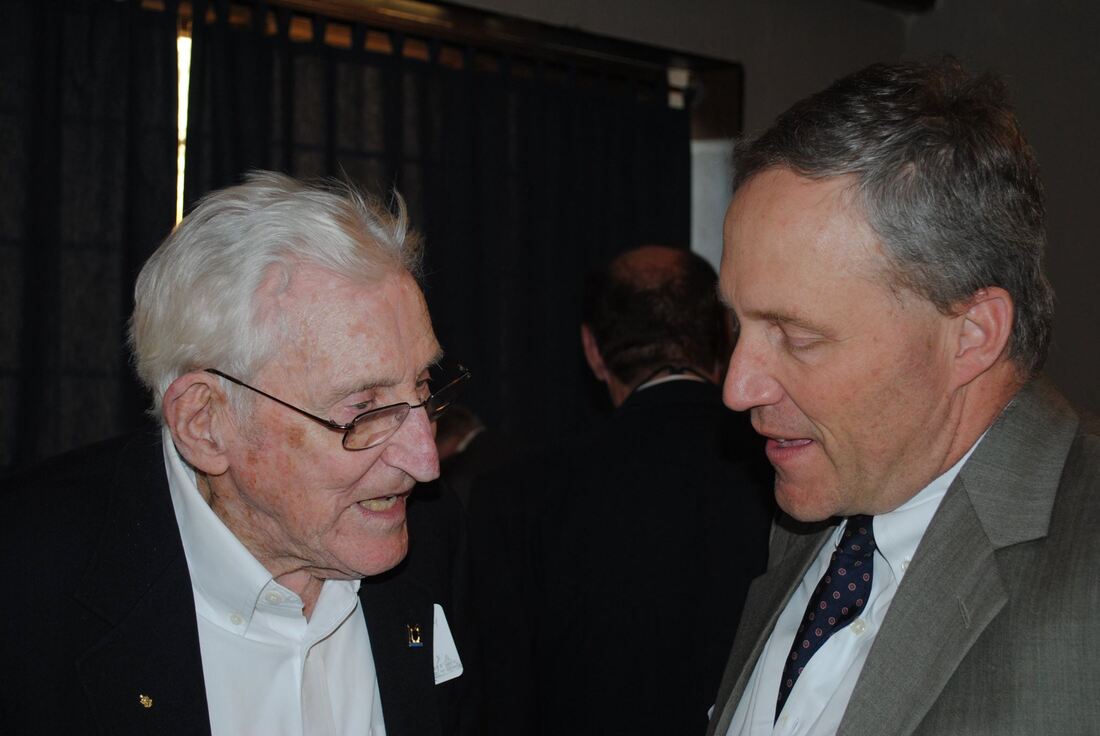
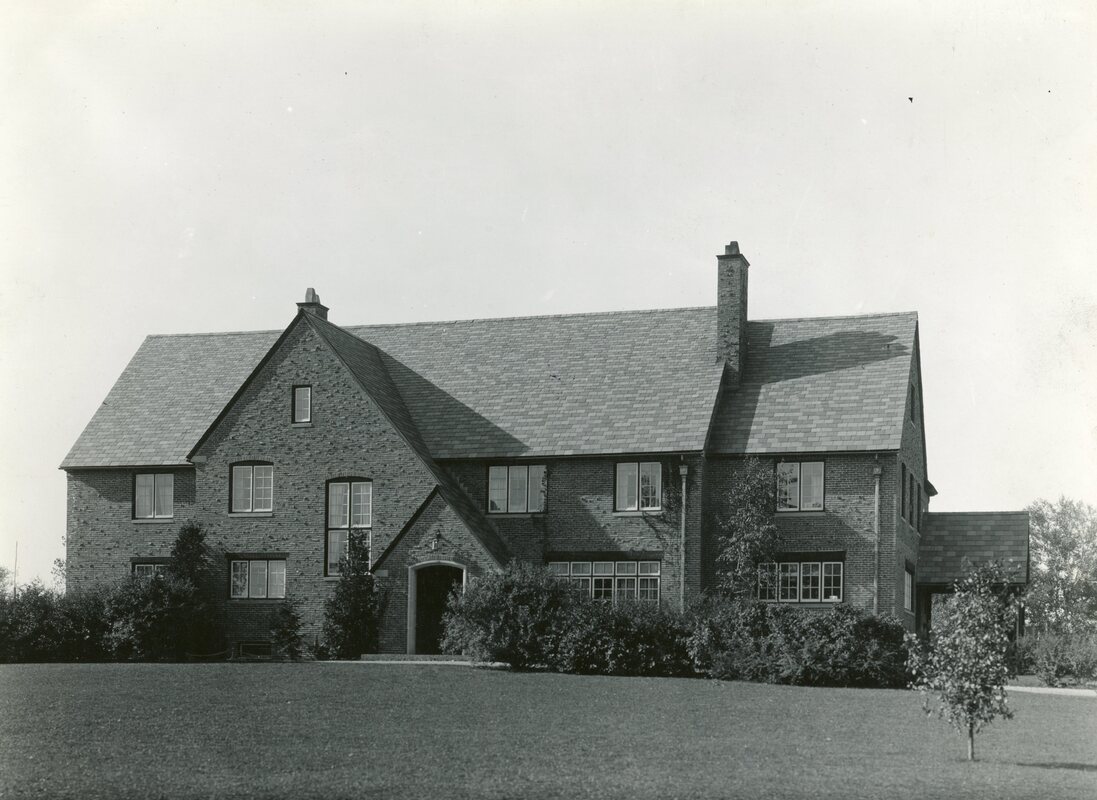
 RSS Feed
RSS Feed